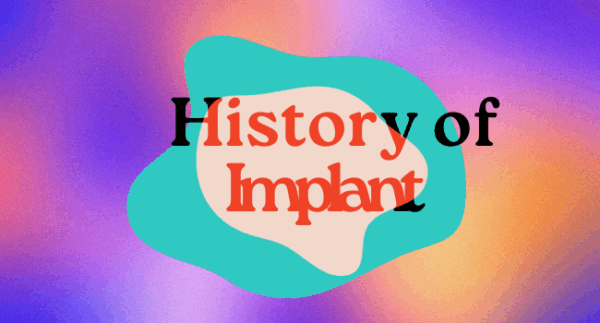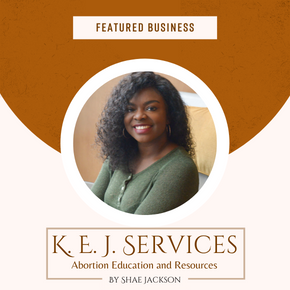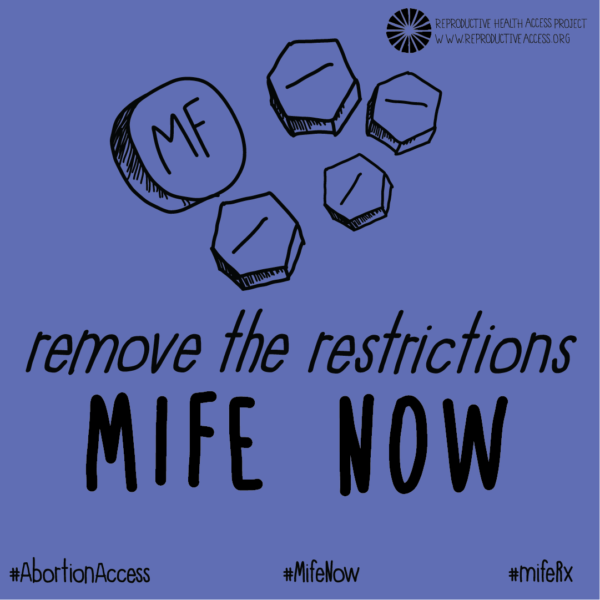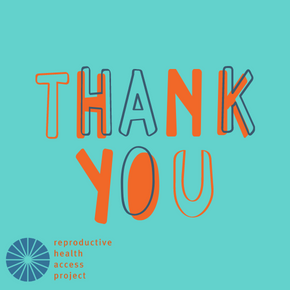Aug 14

Help Us Protect Access to Sexual and Reproductive Health Care Today!
 The Reproductive Health Access Project (RHAP) and Reproductive Health Education in Family Medicine (RHEDI), two long-time partners in reproductive health education and service delivery, invite you to a virtual fundraising event at 8pm EST on Thursday, January 20th to reflect on the 49th anniversary of the Roe v. Wade decision, the Supreme Court decision that legalized abortion nationwide. As we face unprecedented challenges to abortion access both at the Supreme Court and in the states, we will celebrate the legacy of this landmark ruling while also recognizing that we need to think beyond Roe to ensure access to abortion care for everyone, everywhere. It’s time to expand our fight beyond Roe v. Wade and be #BoldforAbortionJustice.
The Reproductive Health Access Project (RHAP) and Reproductive Health Education in Family Medicine (RHEDI), two long-time partners in reproductive health education and service delivery, invite you to a virtual fundraising event at 8pm EST on Thursday, January 20th to reflect on the 49th anniversary of the Roe v. Wade decision, the Supreme Court decision that legalized abortion nationwide. As we face unprecedented challenges to abortion access both at the Supreme Court and in the states, we will celebrate the legacy of this landmark ruling while also recognizing that we need to think beyond Roe to ensure access to abortion care for everyone, everywhere. It’s time to expand our fight beyond Roe v. Wade and be #BoldforAbortionJustice.
This panel features clinicians Mallory Klocke, Bhavik Kumar, April Lockley, Jamie Phifer, and Maya Bass, who will talk about the work they are doing to ensure that their patients receive the abortion care they need and deserve.
RSVP here for the zoom link; this is a free event with a suggested $25 donation. Donations will be split evenly between RHAP and RHEDI
2022 is going to be a heck of a year for abortion access.
While it’s impossible to predict the future, the reality represented in this map is rapidly approaching. At RHAP – and across the reproductive health, rights, and justice movements – we are gearing up to face a future where Roe v. Wade is no longer the law of the land. What would abortion access look like in the U.S. if Roe v. Wade were to fall? Which states would have zero abortion care? Which states would likely become safe havens for abortion, yet also absorbing an influx of out-of-state patients? And, a big question – how much does Roe really matter anyway? So many communities, particularly marginalized communities, are without adequate access, even now. Could the impact of losing the protections we have under Roe be lessened if abortion care were more widely available through telemedicine or if it was easier for people to manage their own abortion? How can RHAP continue to improve upon and expand its work moving forward? What would all this mean for the work RHAP does? How can we best train and support clinicians to provide care and navigate different, constantly changing legal environments?
RHAP is a small organization with a large reach that already works in states where access to reproductive health care varies widely. We are always reassessing how we can best leverage our resources in ways that will have the biggest impact on the clinicians we work with and the communities they serve. As we wrap up an extensive strategic planning process, we’ve recommitted to our mission of ensuring everyone, especially those who have historically been denied health care, are able to safely access the reproductive health care they want and need.
RHAP’s approach is truly unique; everything that we do deliberately aims to bridge the primary care and reproductive health care systems. As we face a future where access to abortion care may not look the way it does now, we know that fostering these connections is more important than ever. Moving into 2022, our immediate challenge is how we thoughtfully and deliberately use our resources for the biggest impact. How do we build upon the networks we already have, and what relationships and partnerships do we develop? Maybe this means focusing more in states where folks needing abortion care will flock to; maybe it means supporting clinicians in states where services are at risk to figure out how they can still provide needed care; maybe this means supporting people who are managing abortion on their own to do it safely and effectively. We certainly have to deeply understand the legal landscape in the various states and communities we are working in and follow the lead of local activists and organizers if we are to leverage the power and voices of the clinician communities we work with to challenge and change our health care system to make it equitable for everyone.
There is a lot of work lying ahead. After a four-month leave, I’m rested and ready. I hope you are too!

Introduce yourself and tell us a bit about your background and history in abortion care
My name is Khashae (Shae) Jackson (she/her/hers) and I’m the creator of K.E.J. Services, LLC, a hub of abortion resources, education, and a center for advocacy. I started my abortion journey in 2015 as a pregnant and confused college student. Besides the casual mentioning of abortion in TV shows and movies, I didn’t have a clue of where to go and who was safe for me to ask for help.
That frustrating experience led me to apply for a job at an abortion clinic upon graduation. I started as a part-time associate and absolutely loved making a difference! I wanted to be a walking, talking wealth of knowledge, and in a way, that’s what I became. After three years, I was cross-trained as a health educator and was promoted to Supervisor. Every day, I worked one-on-one with patients to help them complete their paperwork, counsel them on their abortion or contraception options, and sit by their side in the procedure room.
This job informed my knowledge of abortion care from a clinical perspective and also prepared me for a position here at RHAP. As the Organizing and Communications Associate, I assist with RHAP’s social media presence and administratively support the Reproductive Health Access Network. Now, I’m able to make a difference through expanding access to abortion care and dismantling stigma on sexual/reproductive health.
What inspired you to create your business? What was the process like in pulling together all the resources?
As the pandemic hit in 2020, our patient numbers soared and we were far too short-staffed to keep up. My mental and physical health took a toll, and I made the decision to resign from my job at the clinic. For weeks I thought, “What now? What am I supposed to do with everything I’ve learned over the years?” And so I started jotting down every question I’ve been asked from a patient. I figured getting it down on paper was a great start – and the information I wrote down ranged from finances, counseling, and even questions about recovering at home after an abortion.
I remembered how many patients I’d seen arrive at the clinic before sunrise. They’d be worried about making their appointment, anxious about how much money they could pull together, and deeply confused about their options. They’d usually have stacks of crumpled papers used to jot down their research, contacts to abortion funds, or instructions from our counseling session. That reflection is what shaped K.E.J. Services, LLC as a resource center for advocates, patients, and clinicians who may be new to the process of obtaining an abortion. I wanted to create material to help them stay organized and fully prepared for their appointments. In late 2021, I launched a brand-new resource called Exhale: A Self-Help Guide For Your Abortion Experience.
My brand champions abortion and sexual health as sites of liberation, choice, and basic human rights. My vision is to influence a culture of acceptance, education, and discourse on abortion care that informs clinicians of all disciplines and no longer shames the patient for exercising their rights.
Tell us a bit more about the journal and the content within. How do you intend for audiences to use it? Are there any specific areas you’d like to highlight?
Exhale: A Self-Help Guide For Your Abortion Experience is the first of many journals, guides, and educational materials that will be published. It’s true that abortion patients would benefit the most from it, but I also invite clinicians of all disciplines to use it as a resource. I see Exhale introduced to patients who may be asking about an abortion for the very first time, or as a reference tool when counseling. When I needed help as a pregnant college student, there was very little that my physician could tell me – and I’m eager to change that!
Within this journal you will find over 80 questions to get you started, budgeting templates to help you organize your money, and plenty of space to write out the important things. It’s even categorized by each stage of your appointment to make sure that you have all of the answers to the questions you’ve thought of, and maybe some that you haven’t. You’ll also find a section for minors and the top questions to ask when seeking judicial bypass and parental consent.
Many of the questions are written from the first person perspective because the intention is for the reader to ask these questions to a clinic representative, a provider, or even themselves. I envisioned a guide that could provide the answer to every part of this process, but due to the abortion landscape changing from state to state, there was no possible way I could tailor this journal to everyone’s needs. At the end of this journey, I hope you’ve found the right questions to ask, the space to unravel your thoughts and the resources to help direct you.
Is there anything else you’d like to share about yourself, this experience, and Exhale itself?
I’d like everyone to know that each publication, journal, and social media post is created from a place of understanding, acceptance, and passion. Every decision made is fortified by my personal experience as an abortion patient, my knowledge from the abortion clinic, and a support system consisting of abortion providers, confidants, and reproductive health badasses!
Next, I look forward to publishing more journals that encourage self-development and emotional health. I’m also working on a helpful guide for patients who are looking to self-manage their abortion. I want it to focus on how to administer the medication and how you’re feeling through the process so that the patient can monitor every symptom.
Where can we get our own copy of Exhale?
Exhale can be found on my website https://www.kejservices.com/marketplace. For your convenience, it’s also available on Amazon! You’re able to purchase from Amazon marketplaces for the United States, the United Kingdom, Italy, Denmark, France and Spain. I’m also on Instagram and Facebook where I post tips and abortion facts for anyone who needs them. Please share with your network or any loved ones that may need some guidance. We’re all in this together!

The US Food and Drug Administration (FDA) has long regulated mifepristone, also known as the abortion pill, under a Risk Evaluation and Mitigation Strategy (REMS). Despite mifepristone and misoprostol being one safe, effective way to provide abortion and early pregnancy loss (EPL) care, the FDA restrictions have limited where and who can provide this essential health care. On December 16, 2021 the FDA officially completed its comprehensive review of the mifepristone REMS and announced it would permanently lift the in-person dispensing requirement on mifepristone. This allows clinicians and pharmacies to dispense mifepristone in-person or through the mail. However, the FDA also added a new rule to require pharmacies that dispense mifepristone be certified to do so. The manufacturers of mifepristone are in discussions with the FDA on how to implement the new pharmacy-dispensing rules.
While these changes bring us one step closer to improved access, it does not go far enough. More work is needed to make mifepristone truly accessible and available to everyone. While clinics that have been able to provide telehealth abortion care and to mail the pills during the pandemic can continue to do so after this public health emergency, 19 states ban telehealth for abortion. This inhibits people in these states from getting the medications mailed to them even with these changes to the REMS. And, anti-abortion lawmakers in multiple states are moving to ban mailing mifepristone, to pass their own versions of REMS, and to limit medication abortion at earlier than 10 weeks.
It is crucial that we continue to work and fight to dismantle these oppressive state laws that chip away at – and outright deny – reproductive rights. We must repeal the Hyde Amendment, pass the Women’s Health Protection Act, and train and support all primary care clinicians to provide comprehensive reproductive health care.

Thanks to over 400 supporters, we raised over $260,000 for our 2021 year-end campaign! Your support, and the impact it has on clinicians and patients, keep us inspired. Thank you for taking a stand for reproductive health care and committing to expand access to this necessary care.
We are ready to take on 2022 with full force. RHAP is uniquely positioned to offer creative, flexible, and impactful solutions to issues of reproductive health care access, particularly for communities that already face disproportionate barriers to care. Despite what lies ahead, we know that they will continue to be out on the front lines, providing care to their patients who need it.
Throughout this year we will be taking steps to be bold for abortion justice through our events, programming, resources, and Fellowship. Because of the generous year-end donations RHAP received, we will be able to update the abortion resources we already offer, create new resources, and prioritize incorporating a disability justice lens into our materials. We will continue to train our Fellows to provide and integrate new reproductive health services so they can go on to teach the next generation of clinicians to do the same. And our Network of over 5,000 clinicians will be provided with the resources they need to advocate for and provide reproductive health care, no matter where they are.
Thank you to everyone who helped RHAP achieve our fundraising goal for our year-end campaign! Our work is not done yet – we still have a challenging year ahead of us and hope our amazing RHAP community will continue to strengthen and grow our organization through their generous support.
Your gift allows us to train and support health care providers across the United States so they can offer patients compassionate and comprehensive care.
Aug 14
